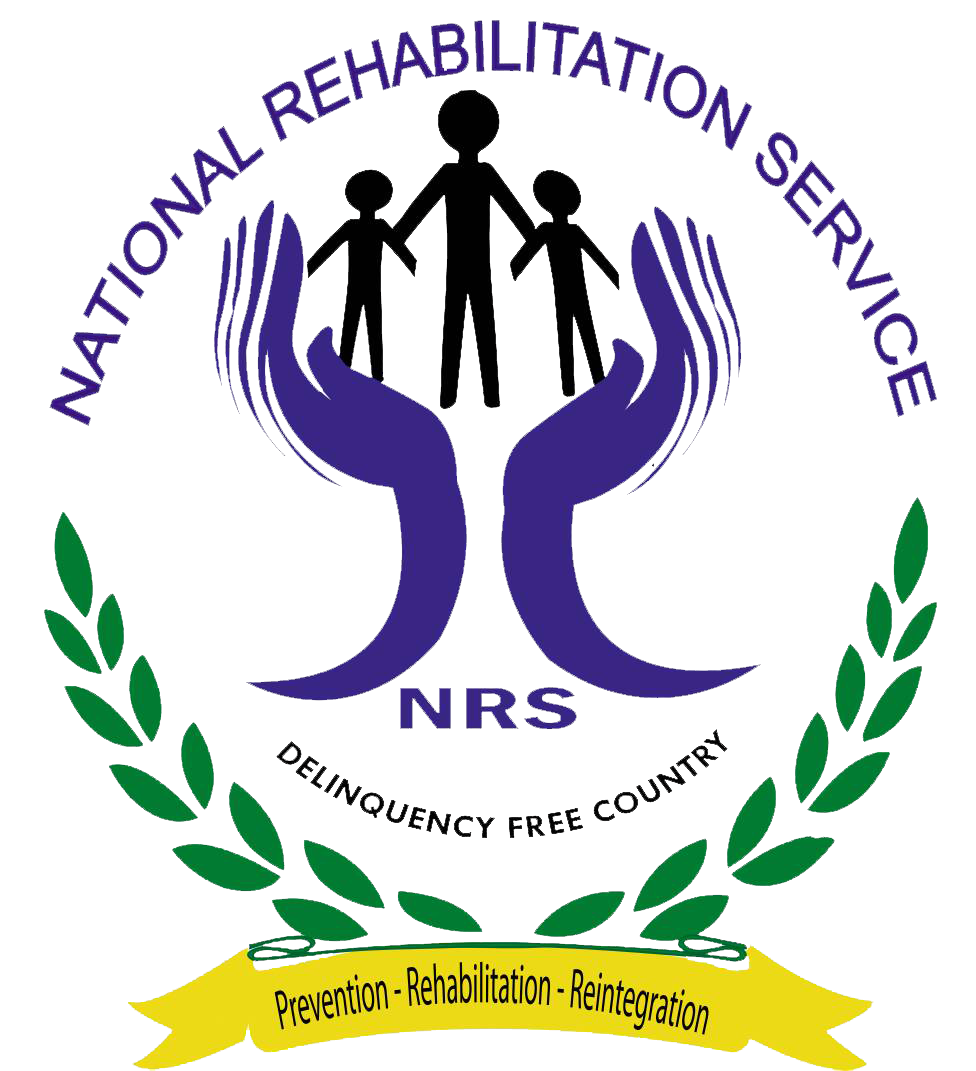WHY NATIONAL REHABILITATION SERVICE
Delinquency is a global problem which may differ in causes from one nation to another. Research shows that the risk factors related to delinquency are compounded by drugs abuse, poverty, political instability, urbanization, dysfunctional family, violence, peer influence and limited income generating opportunities among others. Young people are mainly at risk not just because they may turn to substance abuse, street living and petty crimes as a way of dealing with the difficulties they face but also because they are ambitious and are in danger of being exploited.
Delinquency in Rwanda is not a new phenomenon; however, it has been worsened by the effects of the 1994 genocide against the Tutsi in Rwanda and its subsequent consequences. Rwanda’s Economy and the Social well-being of the Citizens were on the brink of total collapse in 1994. The psychological aspect of citizens was highly compromised and thus results of trauma, loss of hope, sense of direction and purpose of life. The most delinquent stricken part of the Rwandan population lies between 14 and 35 years old.
Delinquency is like a “double edged sword that hurts two at once”. It is not only hurts one’s community and country but also leaves significant impacts to the life of the delinquents themselves. The delinquency has economic and social cultural effects on the individuals, families, communities as well as the entire society and a nation in general.
Despite the setbacks to address the problem of delinquency due to the complexity of the problem but also the lack of a national policy framework, some progress has been registered in prevention and response to the problem of delinquency. The government and its stakeholders have sustained education and sensitisation campaigns against the potential causes and consequences of indulging in delinquency, transit and rehabilitation centres like Iwawa center and mental health settings such as Ndera Neuropsychiatric Hospital and Huye Isange Rehabilitation Centre were established. The obligation to address this problem is split in more than one government institutions, however, there have not been streamlined procedures to enhance coordination and oversight of multiple stakeholder interventions and most of them are not comprehensive enough to address issues of delinquency in their entirety but fragmented interventions that address only a part of the problem.
Therefore, this policy against delinquency will provide a national framework within which all interventions on prevention, response/rehabilitation and reintegration of delinquents will be administered. The proposed priority policy areas are selected cognizant of the ongoing efforts to address the problem of delinquency. The policy actions are either innovations to bridge key identified gaps or proposals for improvement to existing interventions summarised under four policy statements:
• Establish sustainable measures to prevent the incidence of delinquency,
• Define and implement appropriate measures to respond to cases of delinquency,
• Develop and implement a sustainable mechanism for reintegration and follow-up of former delinquents,
• Establish an integrated coordination and reporting framework.
The fight against delinquency is a multi-faceted one involving efforts in the hands of multiple stakeholders. The practical day-to-day implementation of the policy provisions shall be allocated to respective government institutions and dedicated agency in charge of National Rehabilitation. The overall coordination will be undertaken by the Ministry of Local Government (MINALOC) while the steering and technical committees will provide the strategic guidance and oversight of implementation.
